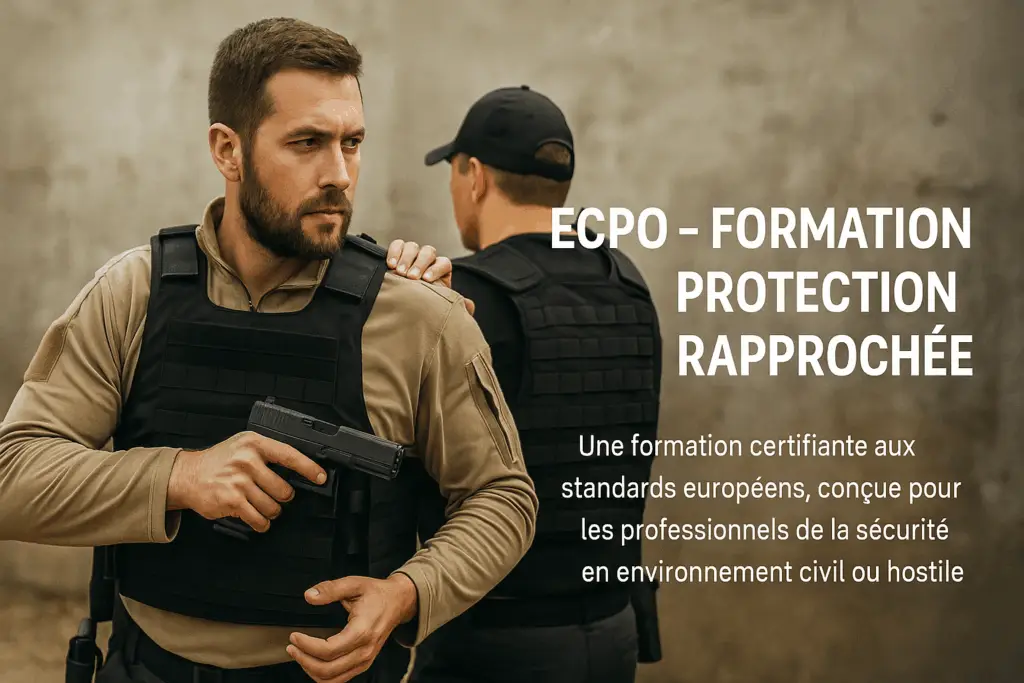ECPO - Close Protection Training

DESCRIPTION OF TRAINING
A close protection agent, more commonly known as a bodyguard, works either as part of a team or independently on assignments, and is responsible for protecting people on business or private trips, in compliance with the law.
They are capable of providing security and intervening to protect people. He is a privileged contact and a ‘facilitator’ of life for the persons to be protected and their entourage. They work in complete discretion.
Increasingly, it is important to take an international view of a CPO's career. This vision must take into account the major international bodies (NATO, EU, EEAS, NGO's, UN, etc). Appropriate and optimal training, as well as one of the internationally recognised certificates, will be a major asset in an international application.
Certified by SII

I: Working as a Close Protection Officer
- Understand the roles and responsibilities of a Close Protection Officer
- Understand basic surveillance, anti-surveillance and counter-surveillance techniques
- Understand the legislation relating to a Close Protection Officer
- Understand the importance of interpersonal skills in a close protection environment
- Understand the importance of reconnaissance in a close protection environment
- Understand search procedures in a close protection environment
- Be able to establish and maintain secure environments
II: Planning, preparation and support of
a close protection operation
- Understand the importance of threat assessment, risk management and operational planning
- Understand the importance of teamwork and operational briefing in a close protection environment
- Understand “on foot” close protection exercises
- Understand the importance of route selection planning
- Understand the importance of transport management in the close protection environment
- Understand incident management in a close protection environment
- Understand site security operations
- Be able to plan and prepare for a close protection operation
- Be able to provide close protection to a ‘principal’.
III: Conflict management in the private security industry
- Principles of conflict management
- How to recognise, assess and reduce risks
- How to communicate in emotional situations to defuse conflict,
- How to develop and use problem-solving strategies to resolve conflicts
- Good practices to follow after conflict situations.
IV: Medic
CLS Mira
V: Prevention of vigilance, prevention and protection in the face of the terrorist threat (FRANCE)
- Prevention of vigilance
- prevention and protection in the face of the terrorist threat
VI: Introduction to IT cybersecurity -digital threats- (FRANCE)
- Introduction to IT cybersecurity (digital threats)
Practical information
- Duration: depending on the country, practical modules + 1 week online
- Location : view
- Language French, English
- Certification : SII
First and only European certificate certified by SII, SECURITY INSTITUTE of IRELAND. It allows recognition of equivalence in ALL member countries of the European Union. - Prerequisites: none, but equivalence depends on the legislation of each country
All our group training courses can be adapted on request / Min 5 people

